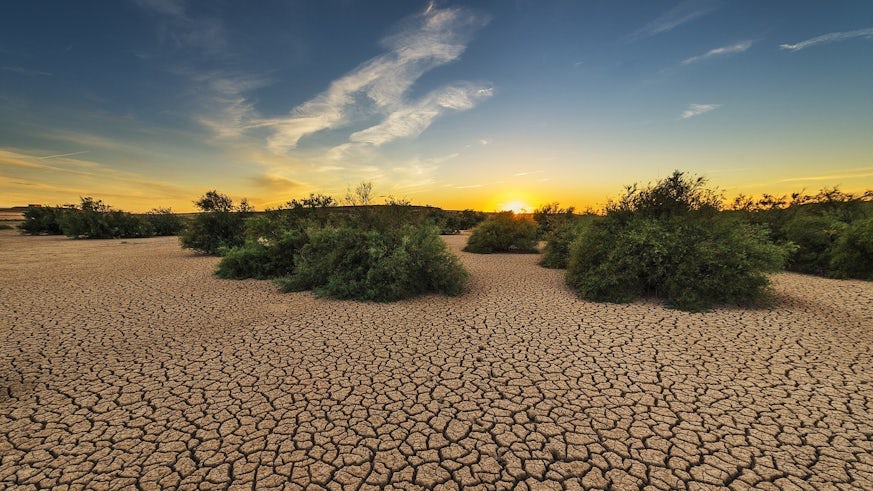Addressing challenges of climate change and its impact on water resources for acutely vulnerable regions
26 March 2020

Dr Michael Singer, Deputy Director of the Water Research Institute, talks to the GW4 Alliance about collaborative research from the GW4 Water Security Alliance on the impact of climate change on water resources.
The increasing variability of rainfall, in terms of its magnitude, timing, and spatial patterns, creates challenges for water resource allocation on local and regional scales. In the last decade, the UK has experienced several years of below-normal rainfall that has hit the south and east of England particularly hard. These precipitation deficits resulted in serious impacts to groundwater and reservoir levels, posing risks to water supplies and the agricultural industry for this populated region.
In other parts of the world, the links between rainfall and livelihoods are much tighter, making these societies more vulnerable to climate change. For example, the Horn of Africa Drylands (HAD) is one of the most food insecure regions on Earth, where seasonal rainfall directly controls food production through subsistence rainfed agriculture and pastoralism (raising of livestock across the landscape). When the critical seasonal rains fail in HAD, as happened in 9 of the last 20 years, it sends shockwaves through society, leading to the need for massive humanitarian response, while eroding resilience, economic reserves, livestock herd size, and health. It appears that, under the influence of climate change, the ‘new normal’ in HAD is characterised by March-to-May drought about every other year.
Despite the proliferation of continually updated climate information for the region, often from European sources (e.g. European Centre for Medium-Range Weather Forecasts) and corresponding improvements in famine early warning systems, major uncertainties remain about the links between key seasonal climate variables and water scarcity in HAD, and the consequential impacts to livelihoods and wellbeing.
We have built a strong team of complementary Cardiff-and Bristol-based GW4 researchers, who are members of the GW4 Water Security Alliance (WSA), to address this global challenge. The GW4 Water Security Alliance is the largest UK water research consortium and one of the largest worldwide, with over 200 academics from across the four GW4 institutions. Our interdisciplinary GW4 team including expertise in surface and groundwater hydrology, meteorology, climate science, drylands, numerical modelling, and computer science, was awarded two recent large grants, both led by PI Michaelides: Drought Resilience In East African dryland Regions (DRIER), funded by The Royal Society Challenge-led Grants; and Mobile phone App Development for Drought Adaptation in Drylands (MADDAD), funded by UK Research and Innovation GCRF.
We are hopeful that the increasing levels of funding to our motivated and energetic GW4 research team (with external partners) will enable us to address the challenges of water scarcity in the vulnerable HAD region, and thereby support adaptation to a changing climate. We also aim to produce new generalizable tools and knowledge that can be applied to other dryland regions of the world.
Read the full article on the GW4 website. to find out more about this collaborative research.

